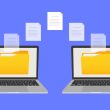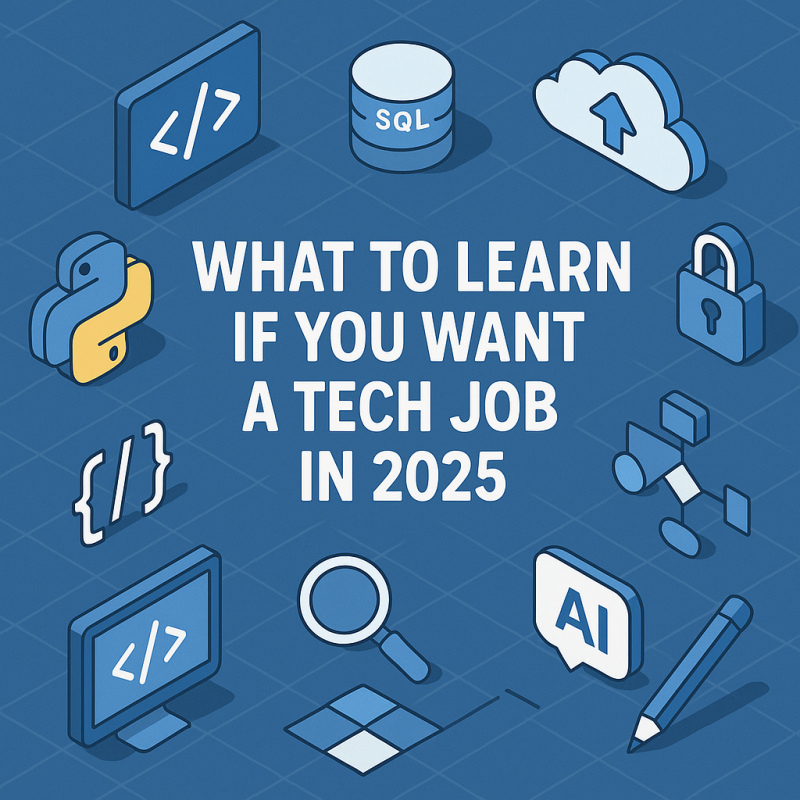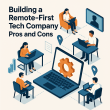Table of Contents Show
Let’s be clear about one thing: tech isn’t just about coding anymore. In 2025, if you want a job in tech, you don’t need to become the next Linus Torvalds or Elon Musk. But you do need to learn the right stuff. The game has changed – and the rules keep changing. This guide is for anyone who wants a job in tech this year, whether you’re fresh out of school, stuck in a dead-end job, switching careers, or just curious.
This isn’t some vague “learn Python and you’re set” list. It’s a focused breakdown of what really matters now – and what’s going to matter even more soon.
The Core Categories of Tech Jobs
Before diving into what to learn, let’s clarify the main categories of jobs you’ll find in tech in 2025:
| Category | Common Job Titles | Example Tech Stack/Tools |
|---|---|---|
| Software Development | Frontend Dev, Backend Dev, Full-Stack Dev | JavaScript, Python, React, Node.js, GitHub |
| Data & AI | Data Analyst, ML Engineer, AI Prompt Engineer | Python, SQL, TensorFlow, Power BI, OpenAI APIs |
| DevOps & Infrastructure | Cloud Engineer, DevOps Specialist, Site Reliability | AWS, Docker, Kubernetes, Terraform |
| Cybersecurity | Security Analyst, Penetration Tester, SOC Analyst | Kali Linux, Splunk, SIEM, Wireshark |
| Product & Design | UX Designer, Product Manager, UI/UX Researcher | Figma, Adobe XD, Jira, Agile |
| No-Code/Low-Code | Automation Specialist, No-Code Developer | Zapier, Airtable, Webflow, Bubble |
| Emerging Tech | AR/VR Developer, Blockchain Dev, Quantum Researcher | Unity, Ethereum, OpenXR, Qiskit |
So what should you learn in 2025? Here’s the breakdown.
1. Python: The Swiss Army Knife of Tech
Whether you’re diving into machine learning, automating tasks, or analyzing data, Python is still king. It’s beginner-friendly but deep enough for advanced use cases.
Why it matters in 2025:
- It’s the go-to language for AI/ML.
- It’s dominating in data science and scripting.
- Nearly every tech bootcamp teaches it for a reason.
What to learn:
- Core Python (functions, classes, loops, etc.)
- Pandas and NumPy for data work
- Flask or FastAPI for web applications
- Jupyter for notebooks and experimentation
Learn Python for free at W3Schools Python Tutorial.
2. SQL: The Language of Data
SQL (Structured Query Language) isn’t optional anymore. Data powers everything, and knowing how to query databases is essential.
Why it matters in 2025:
- Almost every job touches data at some point.
- Business users expect dashboards and insights.
- AI systems often need to pull structured data to make decisions.
What to learn:
- SELECT, JOIN, GROUP BY, HAVING
- Window functions
- Writing subqueries
- Optimization techniques
3. Cloud Platforms: AWS, Azure, and GCP
Companies aren’t hosting on their own servers anymore. It’s all about the cloud. If you’re not learning cloud platforms, you’re behind.
Why it matters in 2025:
- Remote work and cloud-native apps are standard.
- DevOps and infrastructure roles depend on it.
- AI and big data platforms run in the cloud.
What to learn:
- Basic services: EC2, S3, Lambda (AWS)
- How to deploy web apps on cloud instances
- Serverless architecture
- CI/CD pipelines with GitHub Actions or AWS CodePipeline
| Cloud Platform | Strength Area | Certification to Consider |
|---|---|---|
| AWS | Broadest adoption | AWS Certified Cloud Practitioner |
| Azure | Enterprise/Windows-heavy orgs | Microsoft Azure Fundamentals (AZ-900) |
| Google Cloud | Big Data & AI | Google Associate Cloud Engineer |
4. Git and GitHub: Version Control is Non-Negotiable
If you’re not using version control in 2025, you’re either working alone – or you’re doing it wrong. Collaboration, rollbacks, and deployment all depend on Git.
What to learn:
- git init, add, commit, push, pull
- Branching and merging
- Resolving merge conflicts
- Using GitHub for pull requests and issue tracking
5. JavaScript (and Modern Frontend Frameworks)
JavaScript isn’t going away. In fact, it’s more central than ever – especially with frameworks like React, Vue, and Svelte.
Why it matters:
- Powers most websites
- React Native builds mobile apps
- You’ll likely touch it, even in non-front-end roles
What to focus on:
- Vanilla JavaScript (ES6+)
- React (hooks, components, state)
- Basic HTML & CSS
- Fetch API and working with REST endpoints
6. Understanding APIs and JSON
APIs (Application Programming Interfaces) are how modern systems talk to each other. Whether you’re building an app or scraping data, you’ll need to work with APIs.
Key skills:
- Reading and writing JSON
- Calling REST APIs with fetch or requests
- Understanding authentication methods (OAuth, API keys)
- Creating your own endpoints (with Express or Flask)
7. AI Tools and Prompt Engineering
AI is no longer optional knowledge. Even non-AI roles expect you to know how to use AI tools efficiently. Prompt engineering is a skill set in itself.
What to learn:
- How LLMs (like ChatGPT) work under the hood
- Writing effective prompts (system vs user prompts)
- Using APIs from OpenAI, Claude, or Mistral
- Building simple tools using GPT-4 with Python or JS
Prompt engineering is now a $100k/year skill. See this OpenAI article on prompt design: https://platform.openai.com/docs/guides/gpt-best-practices
8. Cybersecurity Fundamentals
Every company cares about security. Even if you’re not in cybersecurity, understanding the basics is crucial.
What to focus on:
- Common threats (phishing, malware, DDoS)
- OWASP Top 10 (e.g., XSS, SQL injection)
- How HTTPS, 2FA, and encryption work
- Tools like Wireshark or Burp Suite (if going deeper)
9. UX Principles and Human-Centered Design
Even coders need to understand user experience. If people hate using your product, it doesn’t matter how “clever” the code is.
What to learn:
- Figma or Adobe XD for mockups
- Wireframes vs prototypes
- Accessibility standards (WCAG)
- How to run user testing or A/B tests
10. Data Literacy and Visualization
You don’t need to be a data scientist, but you do need to be data-literate. That means you know how to read graphs, tell stories with data, and spot BS.
Key tools:
- Excel (yes, still relevant)
- Power BI or Tableau
- Python’s Matplotlib or Seaborn
- Storytelling with dashboards
11. Communication and Collaboration Tools
Tech isn’t just about technical skill. If you can’t work in a team, or present your ideas, you won’t last long.
Most-used tools:
- Slack, Microsoft Teams
- Notion, Confluence
- Jira, Trello
- Loom for async video walkthroughs
12. No-Code and Automation Tools
Knowing how to not code is a major asset. Business units love no-code tools, and they’re growing fast.
Popular platforms:
- Zapier: for automation
- Webflow: for web design
- Airtable: flexible spreadsheets + database
- Make (formerly Integromat): complex automation flows
13. Soft Skills That Still Matter
Soft skills are your secret weapon. These don’t show up on a GitHub repo, but they matter in interviews and long-term success.
| Soft Skill | Why It Matters in Tech |
|---|---|
| Problem-Solving | Core of every tech job |
| Communication | You’ll be explaining complex things to others |
| Time Management | Remote/hybrid jobs need strong self-direction |
| Adaptability | Tech changes fast – you must change with it |
| Feedback Handling | You’ll get lots of critique; learn to use it |
How to Structure Your Learning in 2025
There’s too much to learn if you try to tackle everything at once. So structure your learning based on your goal. Here’s a framework.
| Goal | First Steps |
|---|---|
| Get hired in tech (any role) | Python + Git + SQL + GitHub portfolio |
| Become a frontend developer | HTML + CSS + JS + React + GitHub Projects |
| Pivot to AI/ML | Python + Pandas + Scikit-learn + TensorFlow |
| Move into DevOps | Linux + Docker + AWS + CI/CD pipelines |
| Land a data analyst job | SQL + Python + Power BI or Tableau |
| Freelance with no-code tools | Zapier + Webflow + Airtable |
Final Tips for Getting a Tech Job in 2025
- Build a portfolio: If you don’t show your work, it’s like it never happened.
- Contribute to open source: Real-world collaboration boosts your résumé fast.
- Certifications help: Especially in cloud and cybersecurity – employers love proof.
- Stay current: Follow newsletters like Hacker News, TechCrunch, or The Verge.
- AI won’t steal your job – someone using AI will: Learn the tools, stay competitive.
Closing Thoughts
Getting a tech job in 2025 is completely possible – but you need to be strategic. You don’t need to learn everything. You just need to learn the right things, well. Focus on job-relevant skills, show your work, keep learning, and don’t sleep on soft skills.
The world is full of bootcamps, free courses, YouTube rabbit holes, and mentors. Use them.
Because one thing’s for sure: if you don’t make the leap now, someone else will.









